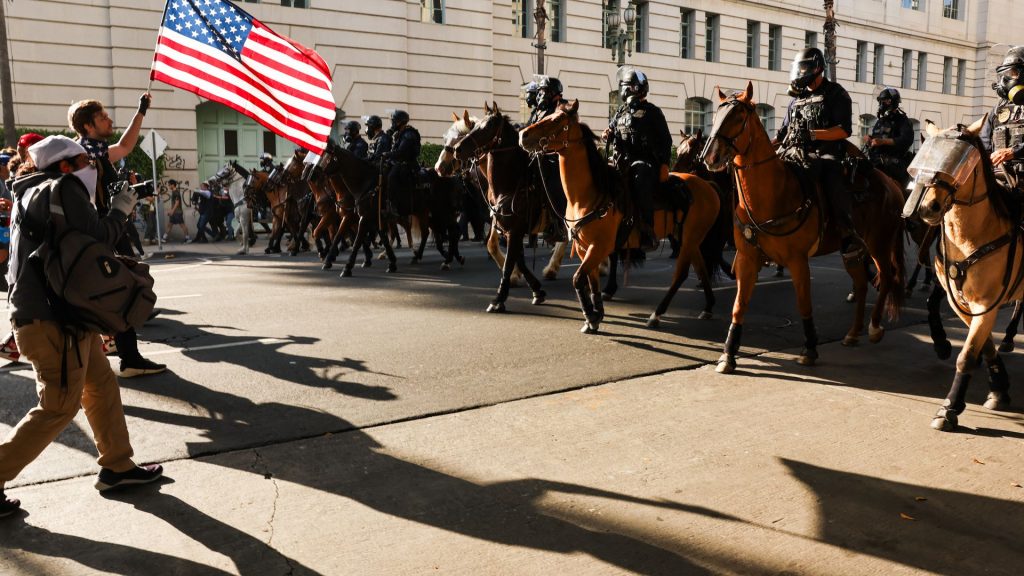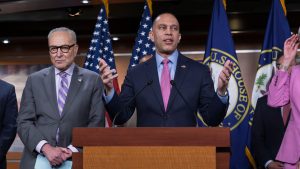California proposes ban on some law enforcement wearing face masks

Two Democratic lawmakers in California have introduced a bill that would ban law enforcement officers in that state from wearing face coverings when interacting with the public. This legislation comes amid protests in Los Angeles and San Francisco against immigration raids and federal immigration enforcement.
SB 267
State Sens. Scott Wiener and Jesse Arreguin call it the No Secret Police Act.
There would be some exemptions to the bill, including SWAT teams and officers who wear medical masks during natural disasters such as wildfires. It would also permit clear riot gear.
It remains unclear whether the bill has enough support in the Legislature or whether Gov. Gavin Newsom would sign it.
Los Angeles protests
Protests have gone on for days in LA over recent immigration raids. President Donald Trump deployed the National Guard in response, without Newsom’s consent. Wiener referenced the protests in Los Angeles while introducing the bill, according to the San Francisco Standard.
As media coverage has shown, there have been dozens of law enforcement officers and protesters wearing face coverings during the protests.
Banning face coverings
On June 7, Trump took to Truth Social and said, “masks will not be allowed to be worn at protests.” However, bills introduced in Congress since 2018 to ban protesters from wearing masks have stalled or failed.
Following the “No Kings” demonstrations on Saturday, June 14, New York City Mayor Eric Adams told NY1 he’s in favor of a statewide ban on face coverings at protests.
A bill in Texas –– that’s close to becoming law –– would ban masks during protests on public college campuses, among other restrictions. That bill has passed the Texas House and Senate and now sits on Gov. Greg Abbott’s desk.
In Nassau County, New York, a new law called the Mask Transparency Act is being challenged in court. That law makes it a misdemeanor to wear a face covering in public to conceal one’s identity, with exceptions for health or religious reasons.





